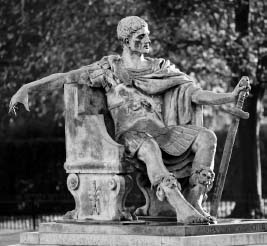ChristianityHistory and Sources |
Why was the Emperor Constantine important in Christian history? |
After learning the protocols of the Roman court by serving under Diocletian, Constantine (c. 274-337) consolidated his power in the eastern empire in around 312. Tradition says Constantine underwent a dramatic conversion to Christianity around that time. The following year he met with his western counterpart, Emperor Licinius, at Milan and the two concurred on a formula for what would become Christianity’s political enfranchisement. In a dramatic about-face in the fortunes of its adherents all over the empire, Christianity now had power on its side. Thenceforth, whenever dissension within the ranks of Christians led to violence, the mainstream could enforce its views by appeal to the Emperor. Under Constantine, Sunday officially became a religious holiday for Christians. Constantine has the further considerable distinction of having convened the first of many “ecumenical councils,” that of Nicea in 325.
Though he was as yet unbaptized, the Emperor presided over the debates concerning the damaging claims by the influential Arius (c. 250-336) that Jesus was a human creature, not eternal and divine, which were opposed by Bishop Athanasius (c. 296-373), who made the case for the orthodox response to Arius’ heretical views. Five years later, Constantine tightened his grip on the empire, established his capital at Byzantium, newly renamed Constantinople (“City of Constantine”), and went on to become known among Orthodox Christians as the “thirteenth Apostle.”

A statue of Emperor Constantine stands outside York Minster in England
